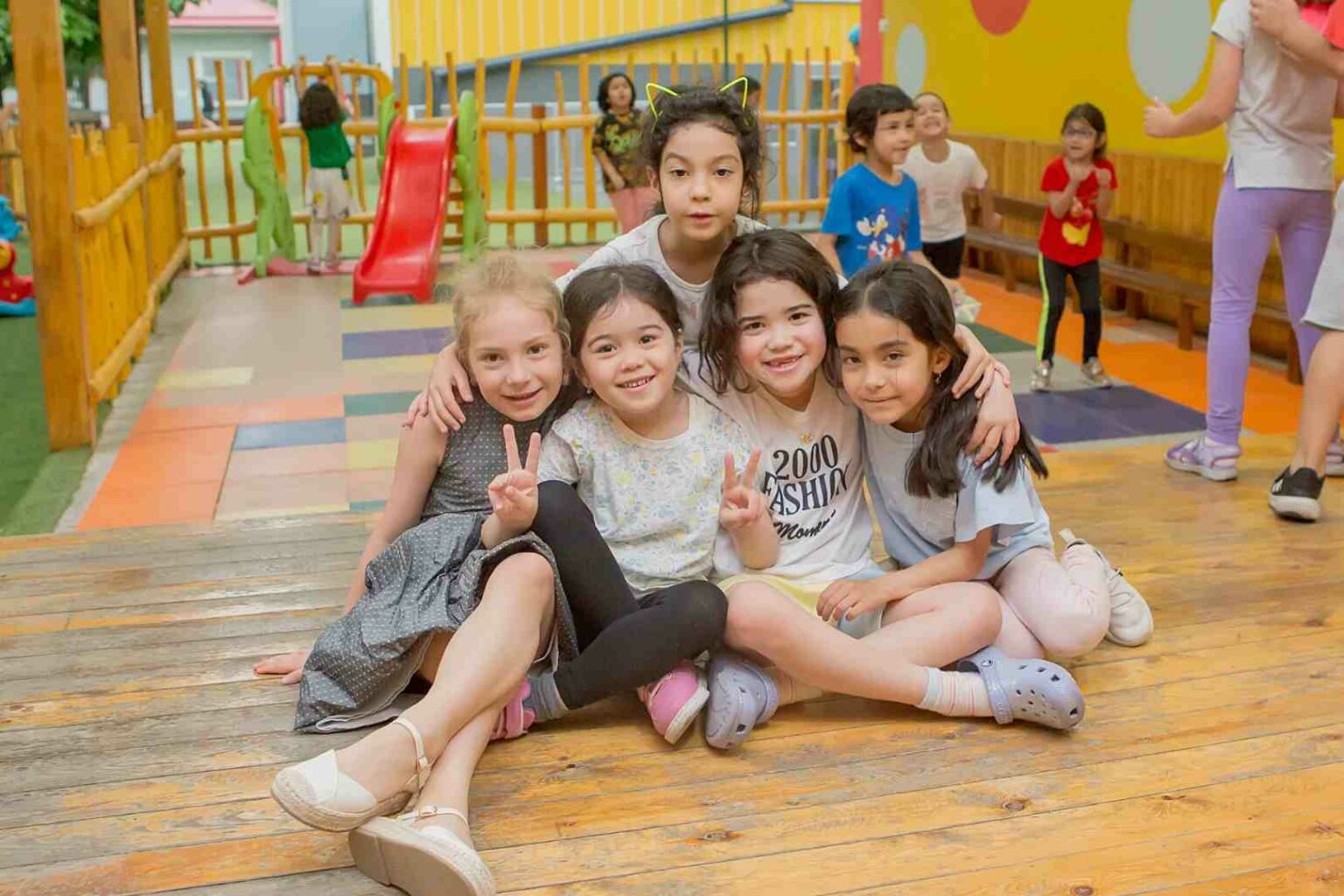The social and emotional development of children is a key aspect of their overall well-being and successful growth. At Oxbridge Kindergarten, we work hard to maintain and develop these important skills in our students. Let’s look at what social and emotional development includes, why it’s important, and how it can be effectively supported.
What is social and emotional development?
Social development is the ability of children to interact with others, build relationships and work in a team. Emotional development involves understanding, expressing, and managing your emotions. Together, these aspects help children become confident, capable and happy individuals.
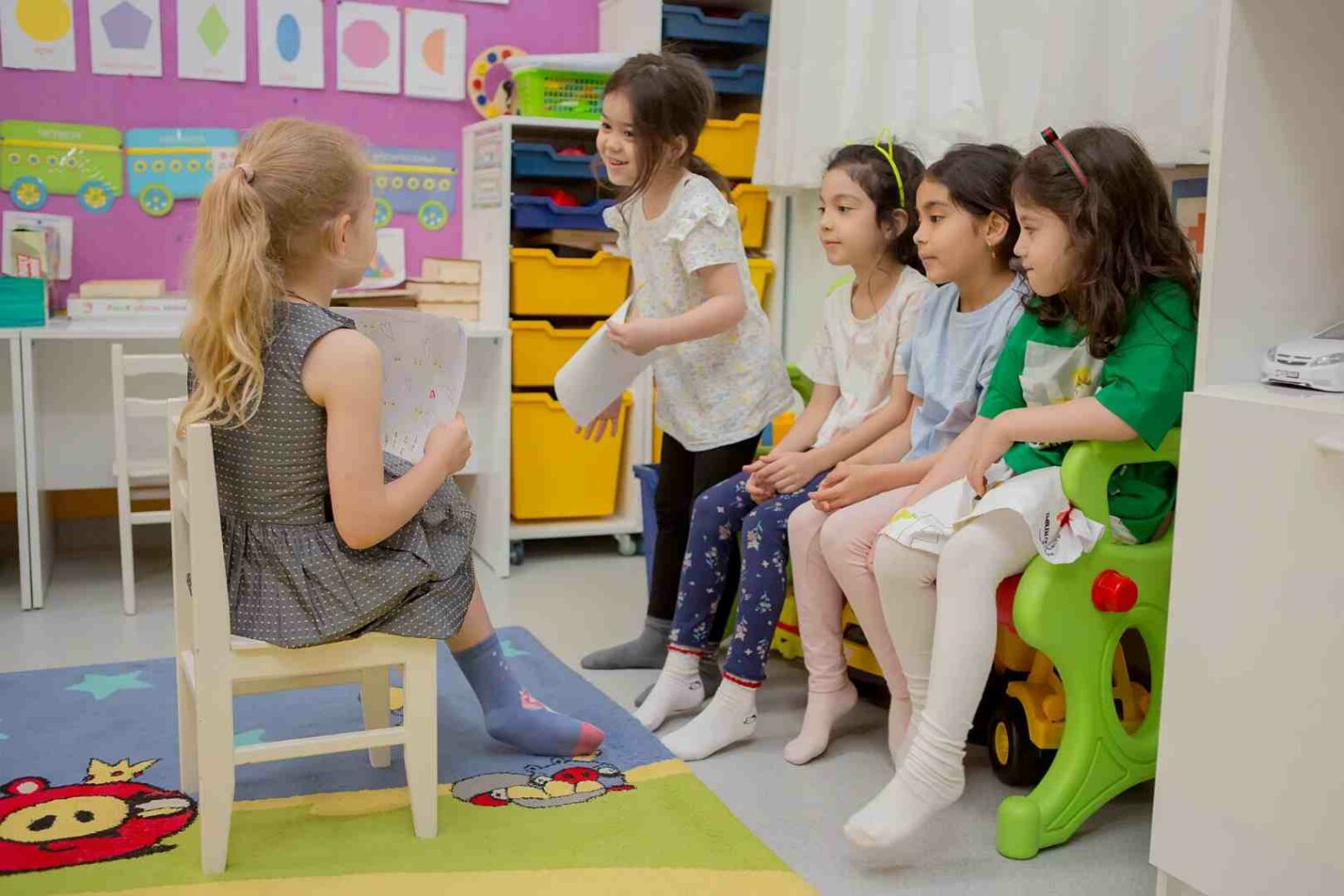
Stages of social and emotional development
1️⃣ Early age (0-3 years old)
At this stage, children begin to become aware of their emotions and learn to express them. They also begin to develop basic skills of interacting with others. Important points are the formation of attachment to the main adults, the beginning of play with other children and the development of basic self-regulation skills.
2️⃣ Preschool age (3-6 years old)
At this age, children actively learn to interact with peers and adults. Key skills include developing friendships, sharing and collaborating, and understanding and expressing various emotions.
3️⃣ Primary school age (6-12 years old)
At this stage, children continue to develop the social and emotional skills necessary for successful interaction in society. They learn to work in a team, develop empathy and empathy, as well as the ability to resolve conflicts and build long-term relationships.
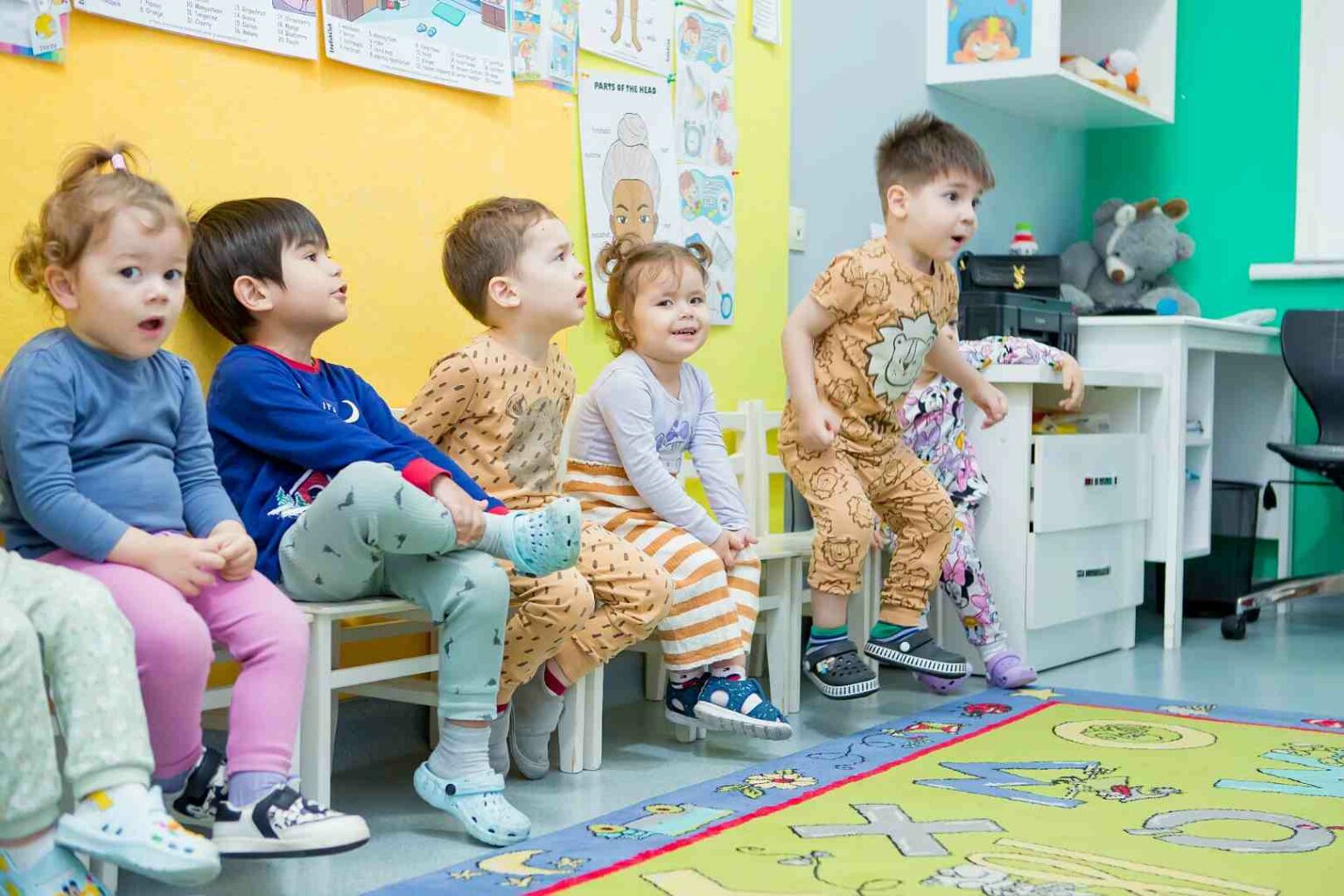
The importance of social and emotional development
Social and emotional development has a significant impact on a child’s future life. Research shows that children with well-developed social and emotional skills are more likely to have successful studies, careers and personal lives. Here are a few reasons why this is so important:
- Successful interaction: Children learn to communicate effectively and work with others, which is the basis for a successful social life.
- Emotional Well-being: Developing emotion management skills helps children cope with stress and anxiety, which contributes to overall well-being.
- Academic success: Children who are able to control their emotions and interact with others are more likely to show high academic results.
- Self-esteem and confidence: Developing social skills helps children feel confident and valued members of society.
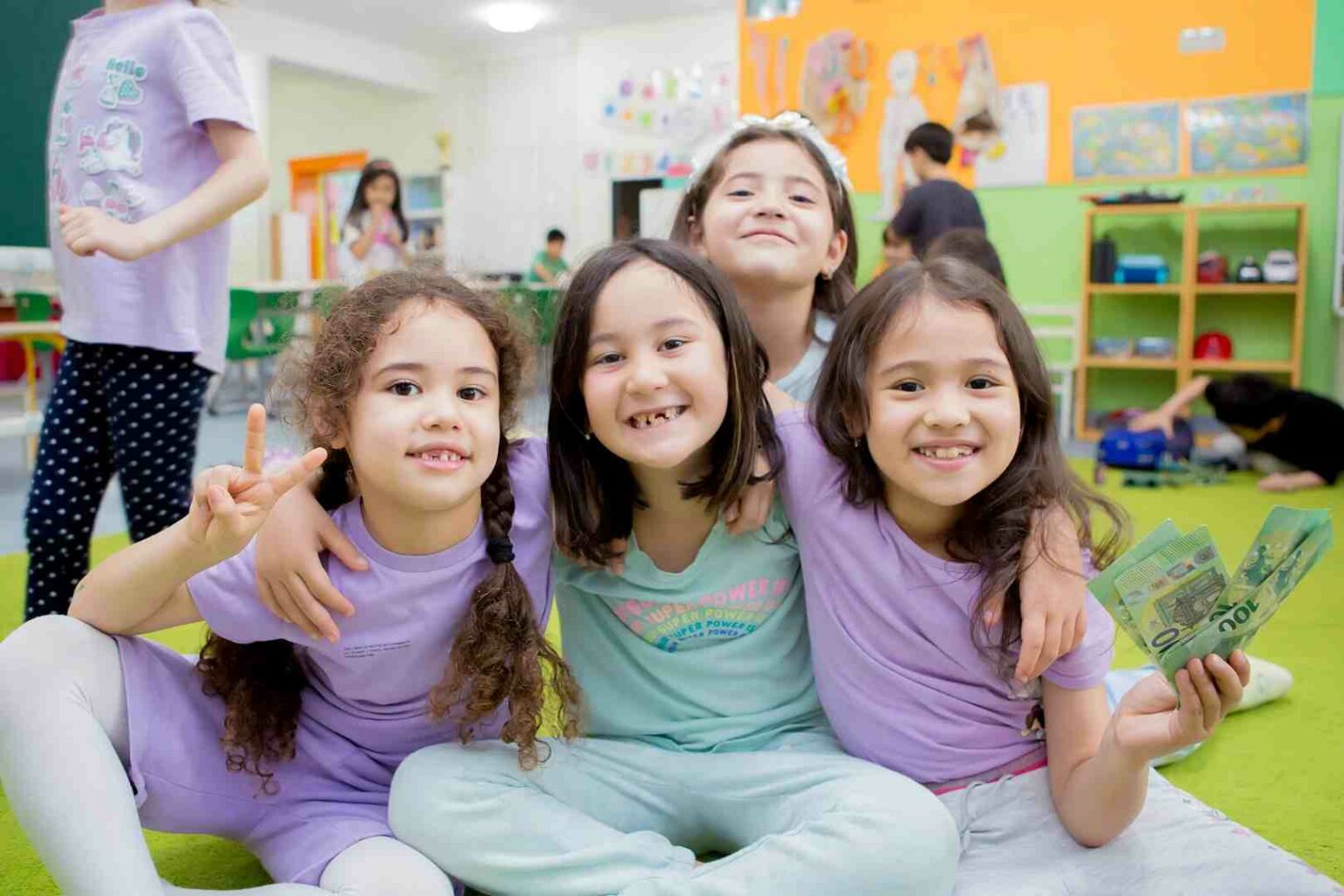
Support for social and emotional development in kindergarten
At Oxbridge Kindergarten, we work hard to create an environment conducive to the social and emotional development of children. Our approach includes several key aspects:
✨ Individual approach
Each child is unique, and we strive to take into account the individual characteristics of each pupil. This allows us to adapt our methods and approaches for maximum comfort and efficiency.
✨ Development of communication skills
We conduct regular classes and games aimed at developing communication skills. Children learn to listen to each other, express their thoughts and feelings, and resolve conflicts peacefully.
✨ Emotional literacy
One of the most important tasks is to teach children to understand and manage their emotions. We use special programs and exercises that help children recognize and express their feelings, as well as cope with negative emotions.
✨ Joint projects and games
Team games and joint projects contribute to the development of cooperation skills and building strong friendships. Children learn to work together, share ideas and support each other.
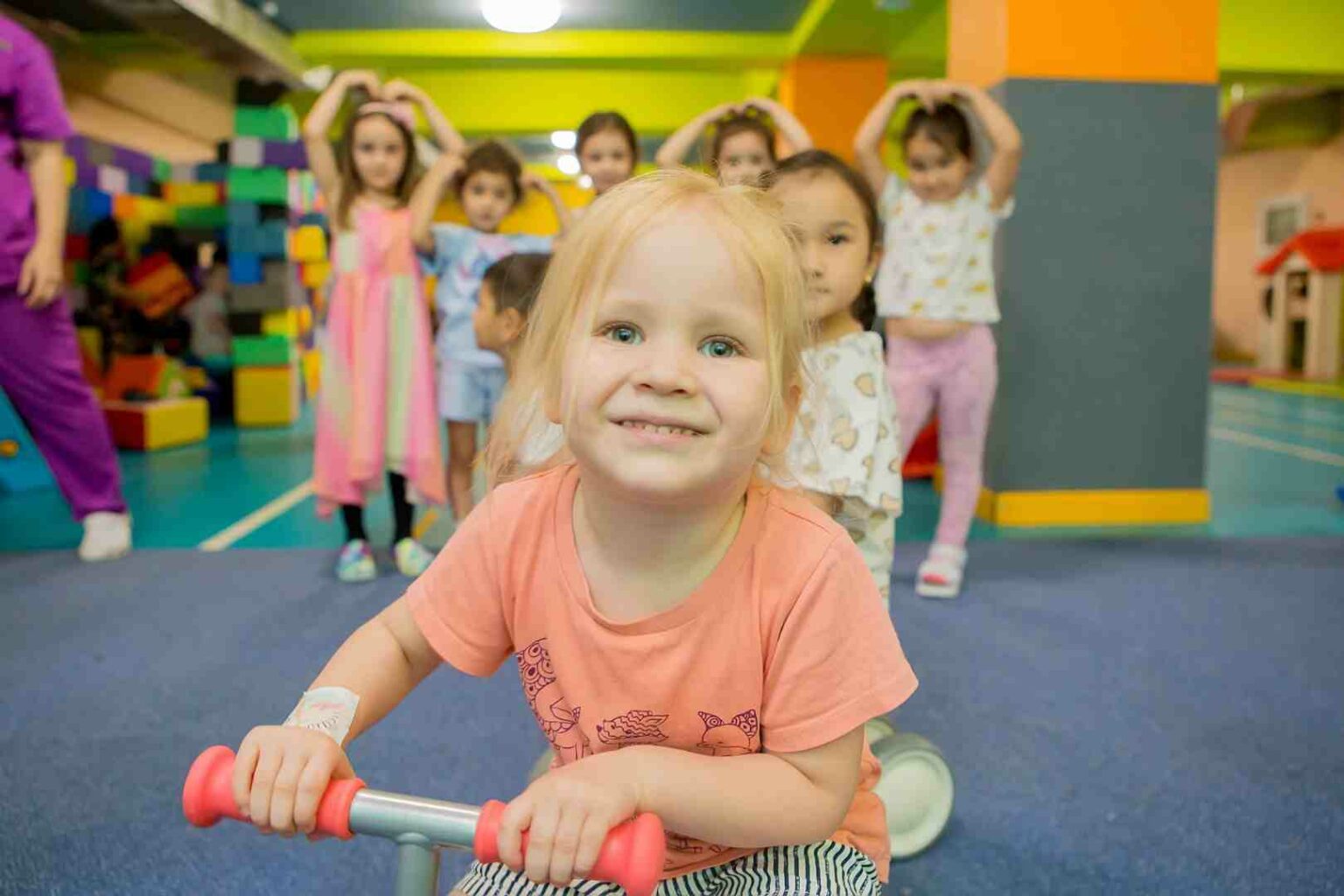
Useful tips for parents
Parents play an important role in the social and emotional development of their children. Here are some tips that can help you support this process:
- Be an example: Children learn from the example of their parents. Show empathy, respect and patience in dealing with others.
- Discuss Emotions: Help children understand and express their emotions. Discuss how they feel and why, and teach them to look for constructive ways to deal with negative feelings.
- Create opportunities for communication: Encourage play and interaction with other children. Organize joint activities and games that promote the development of social skills.
- Support the development of independence: Give children the opportunity to make decisions and take responsibility for their actions. It helps to develop confidence and self-esteem.
- Reading and discussing books: Reading books where characters experience different emotions and situations helps children to better understand their feelings and learn by example.
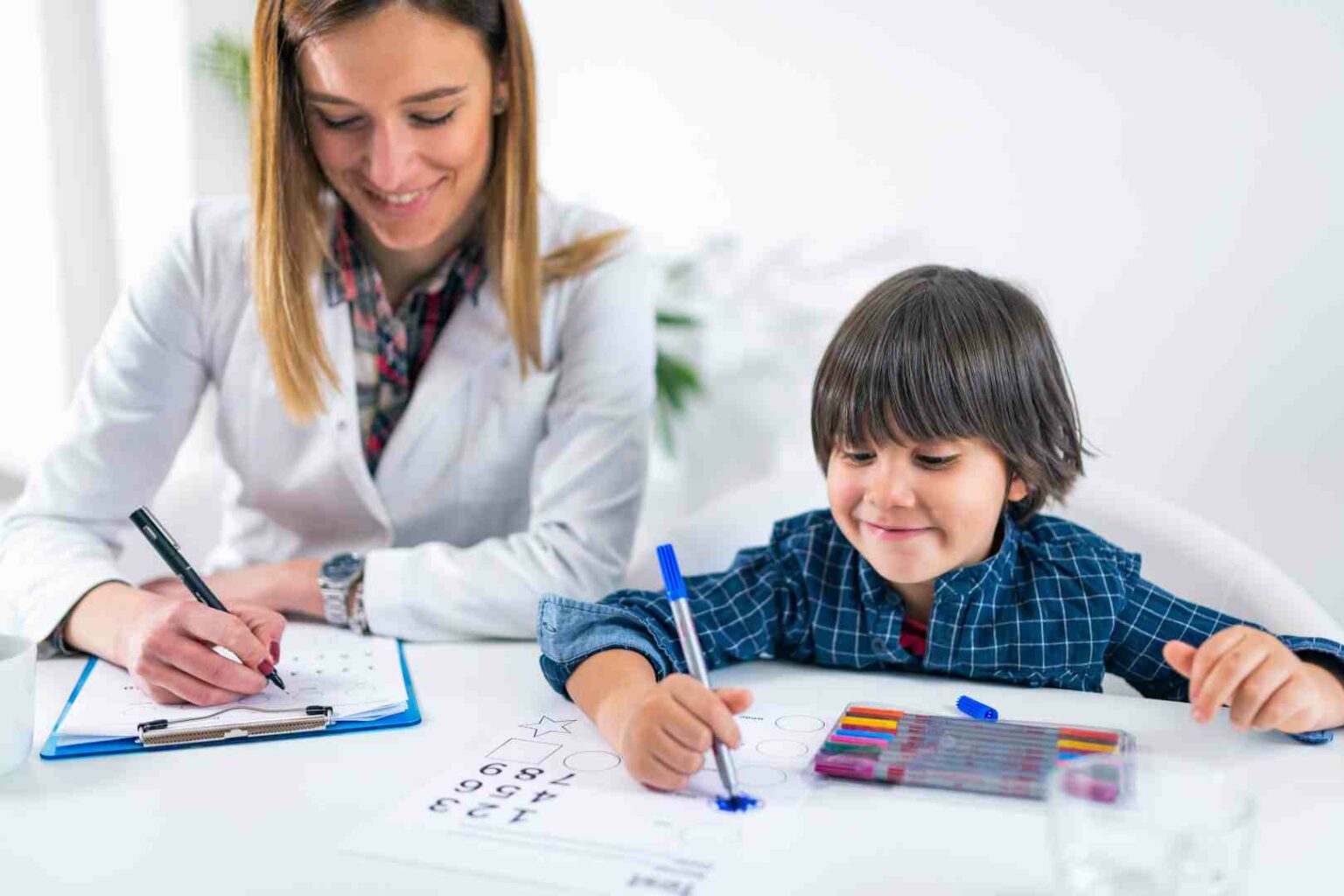
Examples of successful programs and practices
Many educational institutions around the world are successfully implementing programs aimed at developing social and emotional intelligence in children. Here are some examples:
The SEL program, implemented in U.S. schools, is aimed at the comprehensive development of children, including their social and emotional well-being. Research shows that children participating in the SEL program show improved academic results and cope better with life difficulties.
Schools based on Rudolf Steiner’s pedagogy pay special attention to the development of the emotional and social sphere. Waldorf schools use methods aimed at developing children’s self-esteem, empathy and respect for others.

Conclusion
Social and emotional development is an essential component of a child’s overall development. At Oxbridge Kindergarten, we work hard to create a supportive environment that promotes the development of these skills. We are confident that our students will grow up to be self-confident, emotionally stable and socially active people.
If you have any questions or would like to learn more about our approach to social and emotional development, please contact us at +998 (71) 263-00-14 or +998 (71) 263-22-33. You can also visit our Oxbridge Kindergarten website and our blog for more information. We are always happy to help your child become successful and happy!
